Sample Practice: Spelling
How important is it for young children to learn to spell?
You can’t write texts that people will read if you can’t spell. That’s reality. So, yes, June Writers believes that kids must learn to spell as they learn to write—a strategy supported by research on the best practices for teaching writing to children.
Unfortunately (or not?), English spelling is a mishmash of words that follow rules and make sense, and words that break the rules and seem to make no sense. So, while kids who read a lot and have good memories will pick up easy and complicated spellings quickly, many other kids will trip over the spelling of even simple words, such as know or table. We teach the history of spelling to help children understand why these odd spellings exist in our language, impress upon them the value of consistent spelling, and let them know that spell check has its limitations. Believe it or not, there are good reasons why table is spelled table and not tabel (hint: it has to do with the French).
The spelling words are a mix of basic words—which even well-read kids can sometimes misspell—and more advanced vocabulary words. Your child will be challenged to look at these words more deeply than usual: we ask them to note the phonemes and to match the word with their (sometimes odd) word roots. In other words, your kid will finally know exactly why the word “know” has a k, and will never forget to spell it correctly again.
We also use our spelling practices to reinforce good reading habits: sounding unfamiliar words out. And to have kids continue with their overall writing progress by developing their fiction writing skills. Below is an example of a spelling practice from Level 2.
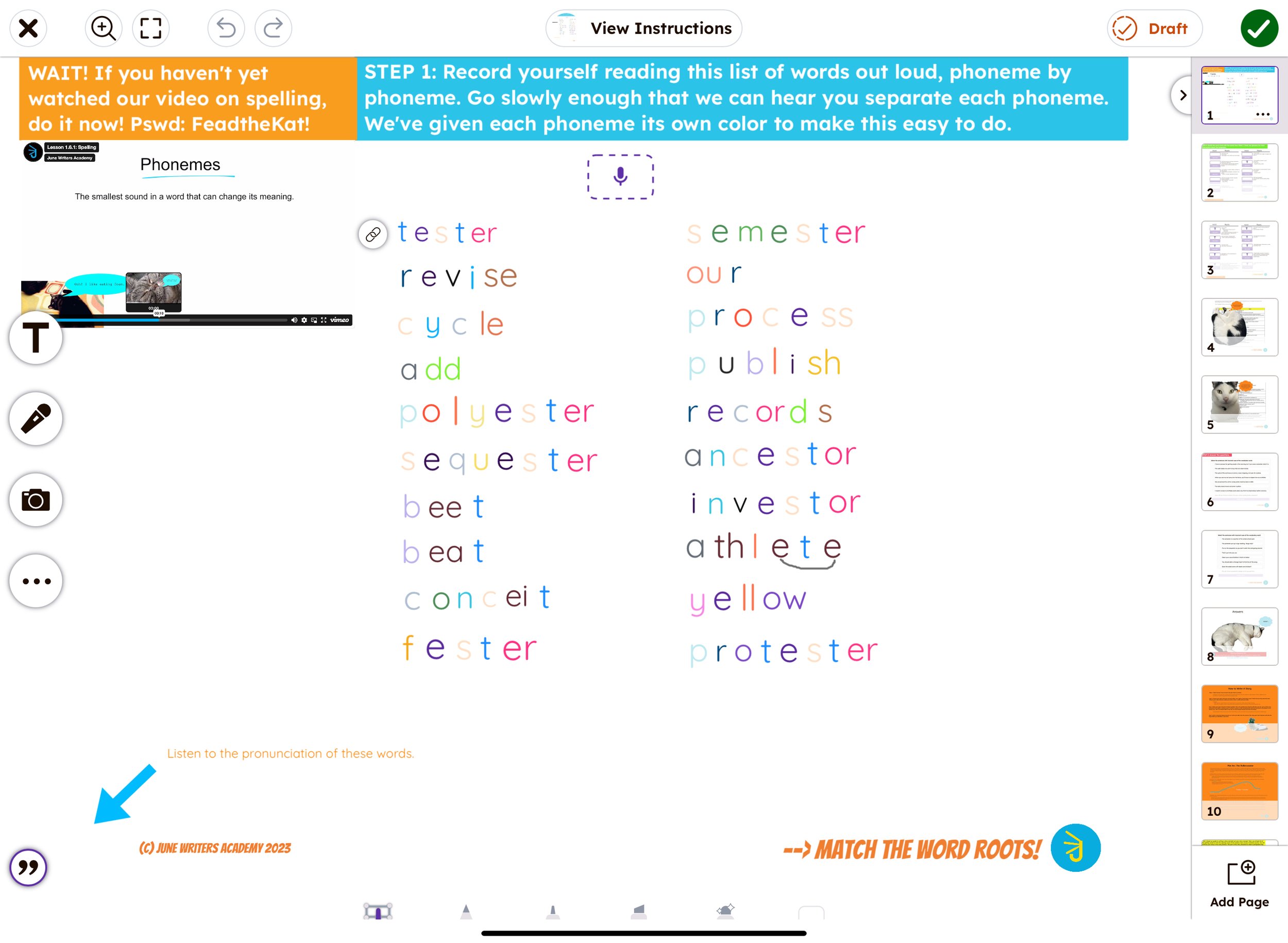
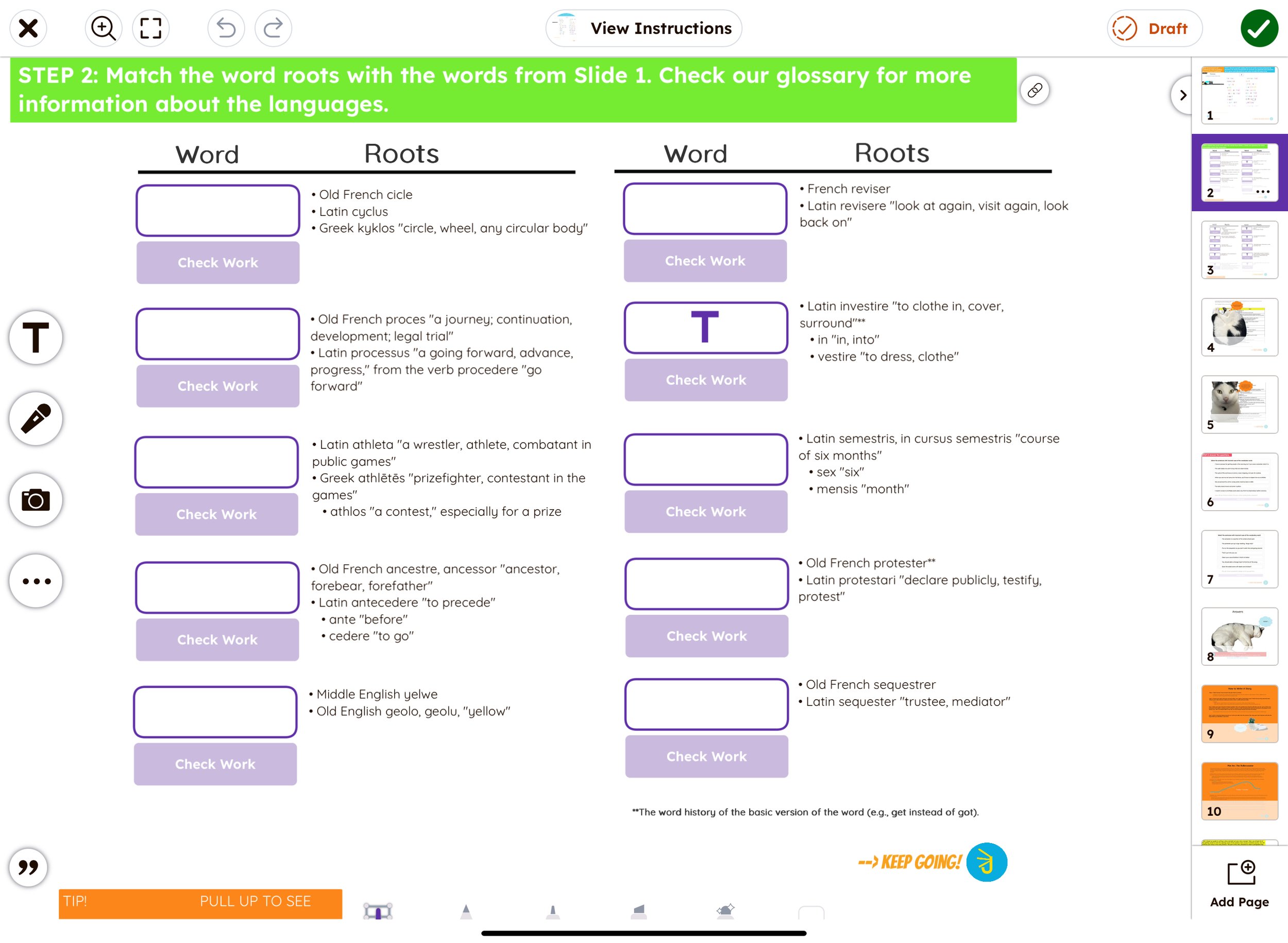
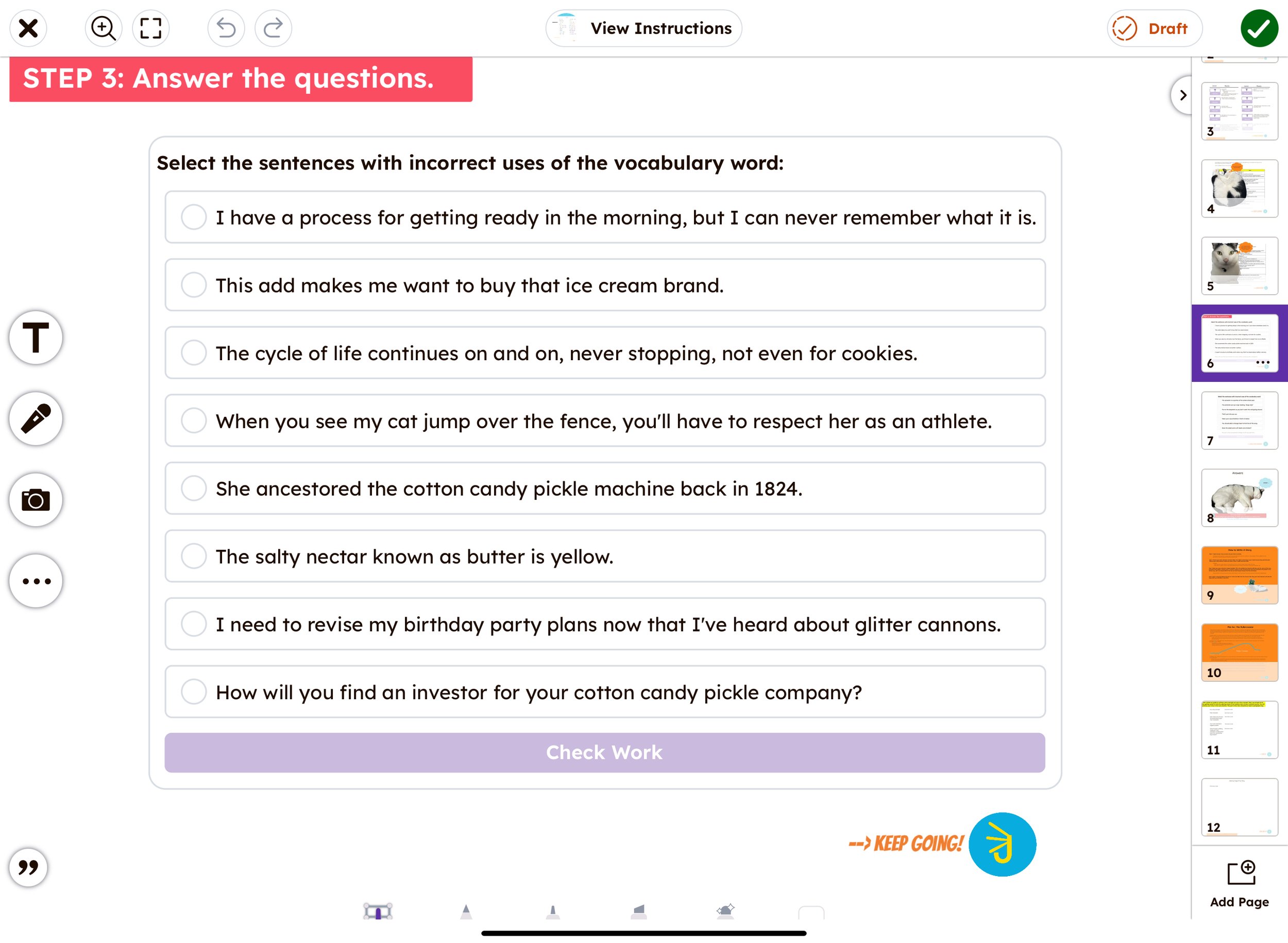
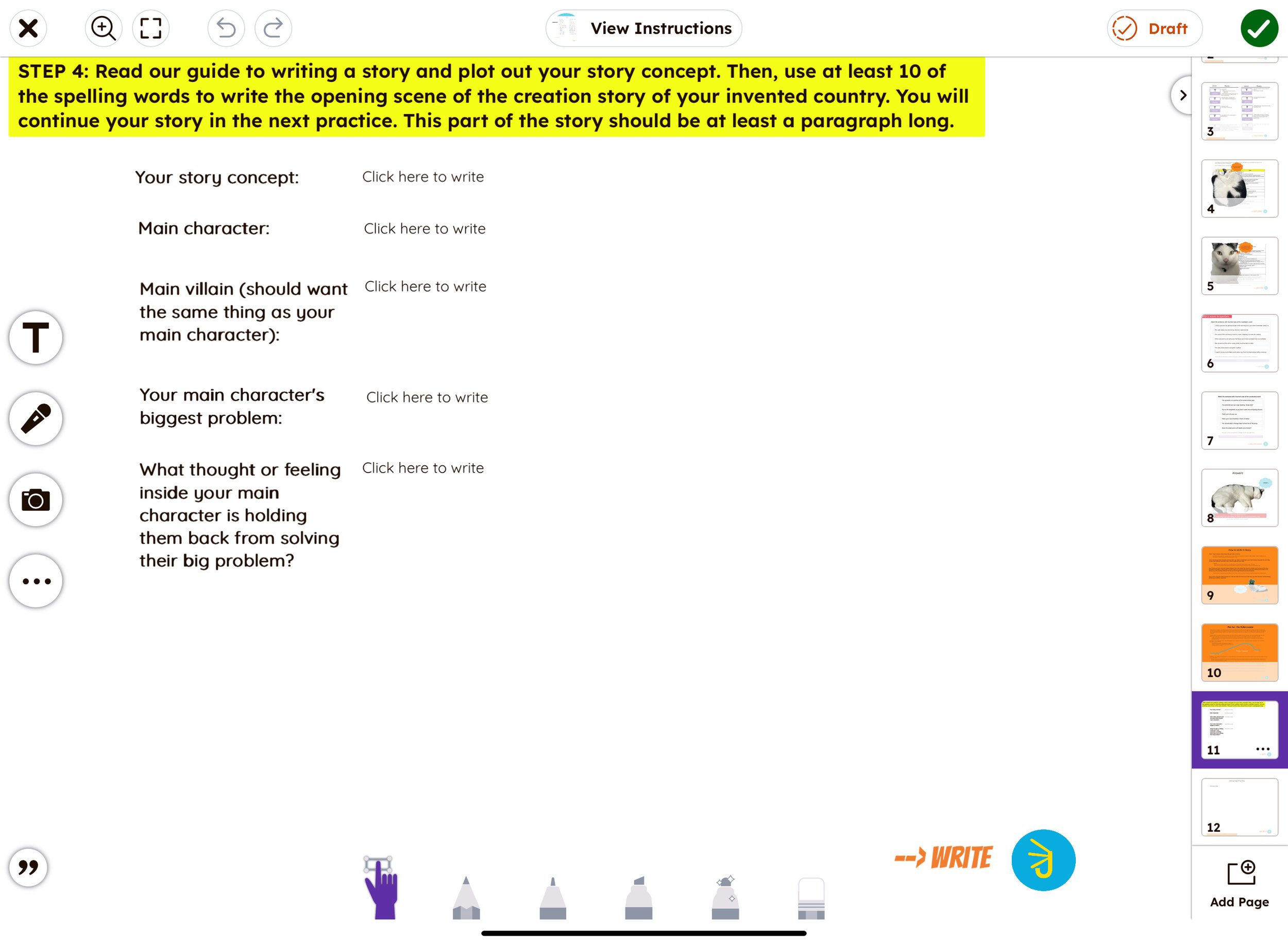
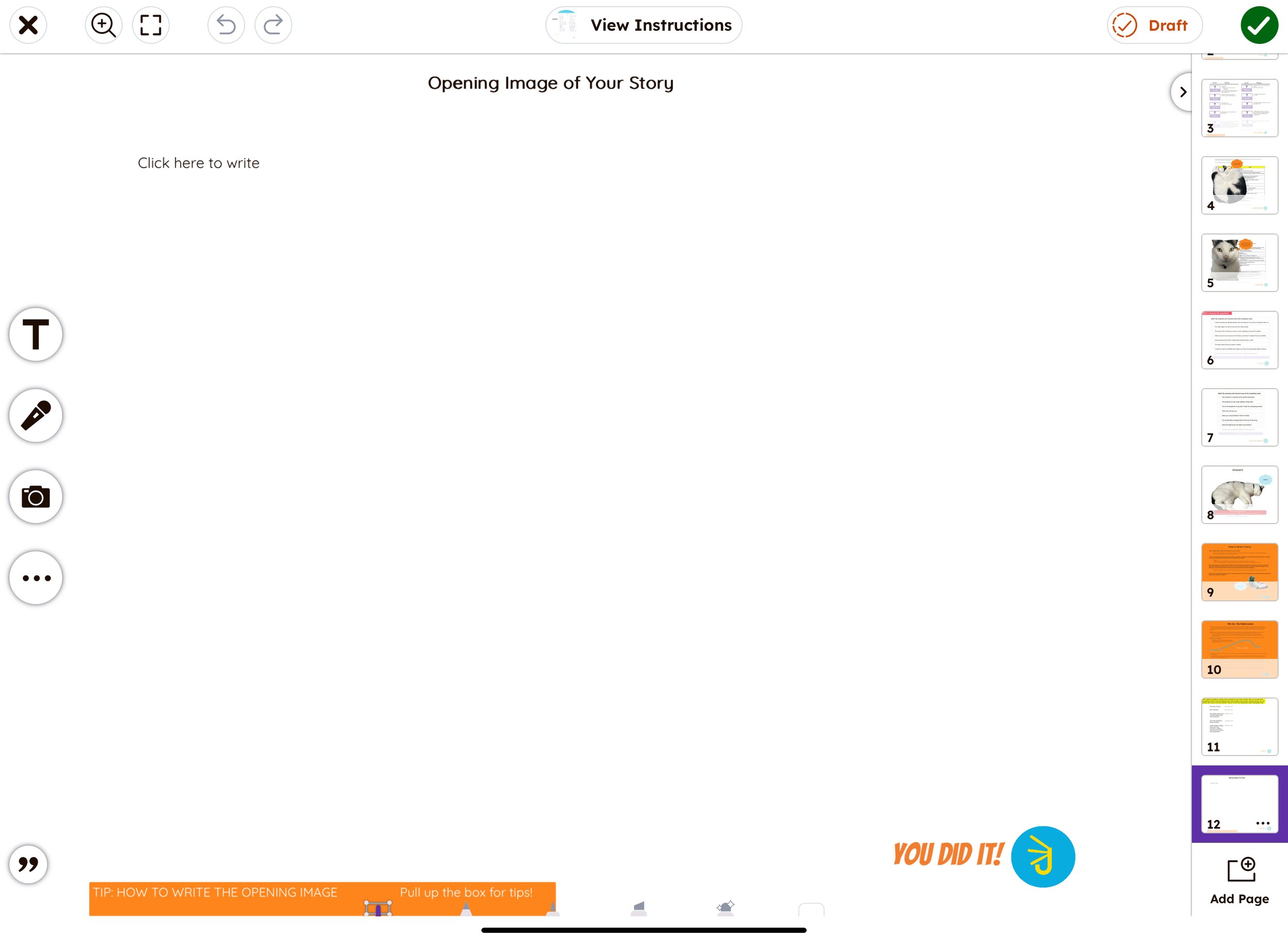
Ready for your child to learn to spell and develop their word sense?
